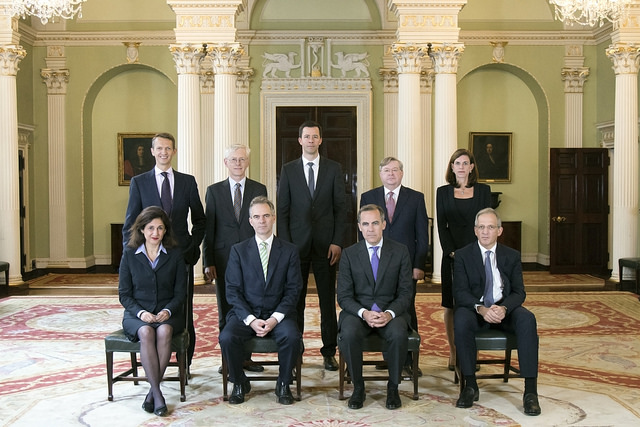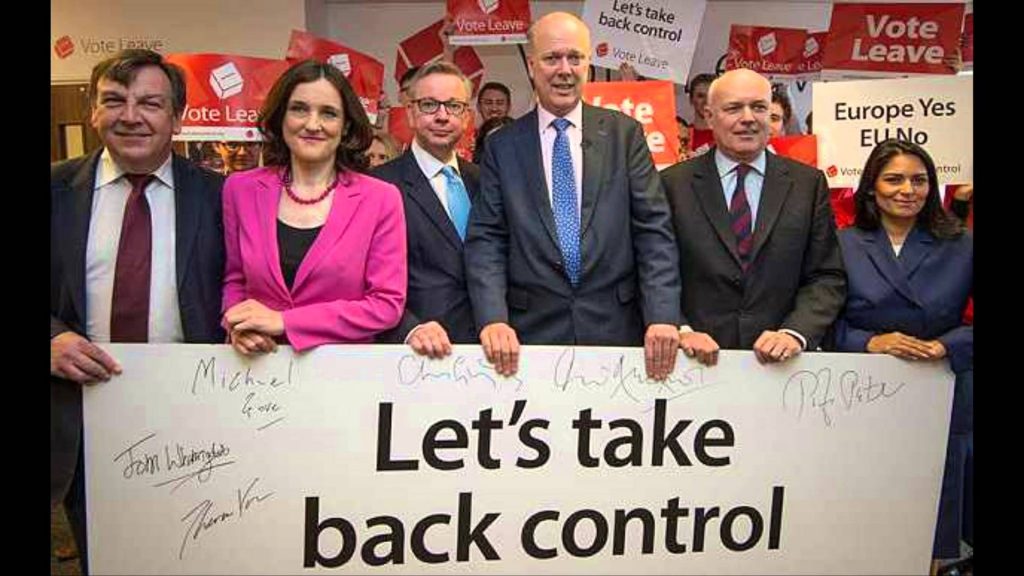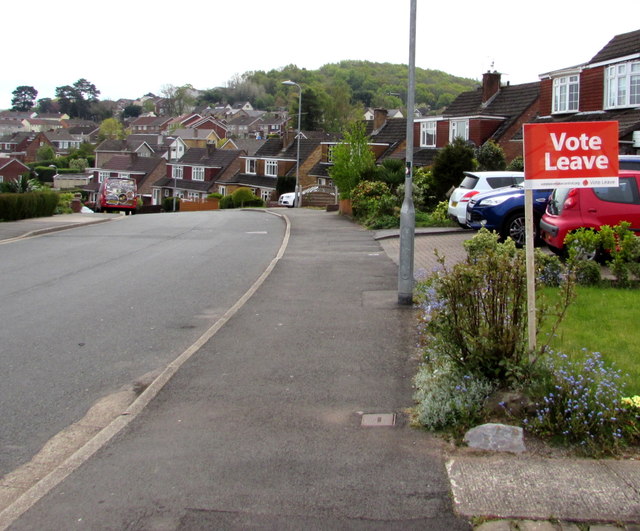
Dr Hugh Pemberton
Reader in Contemporary British History, University of Bristol, Department of History
What have we learned in the days since Britain voted to leave the EU by a margin of 3.8 percentage points?
The UK has jettisoned its foreign policy of 55 years, the political class is paralysed, and the country is in dangerous economic waters. This is a political failure on a scale unprecedented in modern British history which calls into question fundamental features of our political system.
First, it is clear nobody has the slightest idea how Brexit (either ‘hard’ or ‘soft’) is to be accomplished. Those campaigning for a Leave vote had no plan for how it might be achieved in a way that would not impose lasting damage on the country by crimping exports to countries that represent 45% of our overseas trade. Astonishingly, no serious contingency planning had been done within Whitehall, which consequently, is having radically to reorientate itself and try to find people with the necessary skills.
Second, many of the dire predictions of ‘project truth’ were right. The pound is at a low not seen for 31 years – not a bad thing for exporters but a significant loss for international investors in our economy, and in our government’s debt, that may ultimately have consequences for their confidence in us. There are serious concerns that the widespread economic uncertainty is leading a downturn in business investment, not least in the all-important service and construction sectors, and to large scale cancellation of investment, creating the conditions for recession. Many large firms (e.g. HSBC) are already implementing plans to redeploy parts of their business and workforce to the Continent. As the Bank of England has warned, Brexit is ‘crystallising’ very serious economic risks as well as posing a major foreign policy challenge.

Current Bank of England Monetary Policy Committee. Credit – James Oxley/Bank of England Flickr.com
Third divisions within British politics have created political paralysis.
- Leave campaigners had no plan partly because they did not really expect to win but mainly because they were themselves divided, most notably between closed labour markets (to control immigration) and an open economy.
- The Conservative party was/is also divided and consequently is conducting a leadership election rather than governing the country.
- Labour’s internal civil war has reignited with a vengeance. Preoccupied with its civil war it is failing to fulfil its role as an Opposition party in Parliament.
- Profound divisions in Northern Ireland have the potential to re-emerge in an ugly way as the division of Ireland becomes once again a physical reality.
- The only party with a clear policy is the SNP: clearly planning to use Brexit as the means by which to achieve independence, thus signalling the end of the United Kingdom as we know it.

Vote Leave EU Referendum Campaign. Credit Micheal Khanye/YouTube
Because of the political chaos there is almost no political lead (George Osborne’s acceptance of deficit financing to maintain growth notwithstanding) and Parliament has not properly debated the consequences of the referendum vote. At the moment lame-duck politicians, Civil Servants and the Bank of England are trying to fill the vacuum. The Bank has done well, but its governor has warned of the limits to the Bank of England’s capacity to manage the economy. Civil Servants are doing their best, but in the absence of a clear and politically legitimate steer are politically exposed.
What are the implications?
We have to acknowledge that the howl of rage that was the Leave vote said something about the way in which our political system no longer adequately represents the interests of large swathes of the British electorate.
In the quarter century after 1945, the British first past the post electoral system conformed to Duverger’s Law, providing a stable system in which two parties consolidated and mediated interests and, between them, took 87-97 per cent of the vote. It began to work less well as people began to lose faith in those parties. We first saw the rise of a significant third party (in February 1974 the Liberals took nearly 20% of the vote), then the creation of the SDP (in alliance with the Liberals taking over 25% in 1983), then the rise of the SNP, the Greens, and, more lately the growing vote for UKIP (which gained only one MP in 2015 with 12.6% of the vote, clear evidence of the failure of the current electoral system). A system that can deliver a government opposed by 65 per cent of voters on a turnout of only 61 per cent (as happened in 2005) is plainly broken. We have turned a blind eye to this for decades; the Brexit vote, with its high turnout of disgruntled people many of whom had not voted for years, has made that failure plain.

Vote Leave sign, Malpas, Newport
© Copyright Jaggery/Geograph.com
At the same time, ‘Europe’ has historically proved difficult for the main parties, which have often been fundamentally divided on its utility and over time have reversed their positions. Only the Liberal Democrats have been consistently pro-EU, only UKIP consistently anti- – and look where that has got them in terms of Parliamentary representation.
Last week I argued that today’s generation of politicians were facing a crisis of May 1940 proportions. The political challenge of unravelling Britain’s close political relationship with the EU is immense (people better informed than I estimate it will take a decade and consume vast amounts of government time). Brexit also poses a substantial challenge to an economy not yet fully recovered from the 2007-8 financial crisis. It is the political vacuum that makes the situation so dangerous. Big foreign policy decisions have to be made relatively soon but those preparing for them have no map to help take them to our preferred destination. Another recession will cause much misery and more political disappointment. Add that to the fear and xenophobia produced by the referendum and we have the making of something truly nasty.
In short, I think we urgently need political action that is effective and enduring. To be enduring we need some sort of consensus about our preferred future. This might be best delivered by a rapid and significant realignment of British party politics around its centre (there is nothing immutable about political parties – at root they are simply groupings of elected representatives), though I am not optimistic. Ultimately, however, by laying bare the extent of political exclusion of the ‘left behind’, the events of the past couple of weeks suggest we badly need to reconfigure both the UK’s electoral system and its representative institutions.
